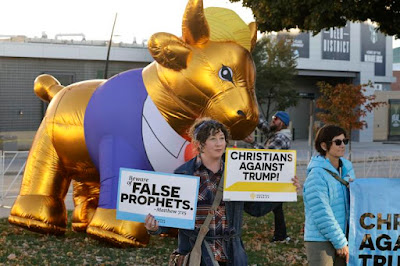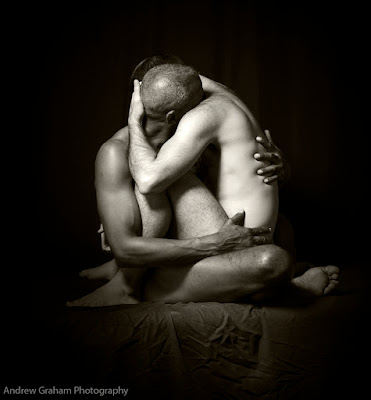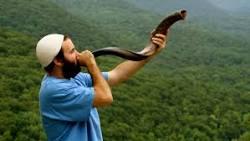In this and several more intallments, here comes a manifesto. My posts to Anchorhold have always had a utopian slant. I've always shared thoughts here about a longed-for social formation: one where our queer spiritual lives can find expression and support in conditions of full visibility and community.
Content warning: abstract, theoretical language and some long sentences.
1. Life on the Margins
I'm absolutely convinced that our inner lives as queer men are enriched and deepened by creative ritual practice.
Yet I get really uneasy hearing people talk about ritual as though it doesn't change across time, or from one community to another. So instead, I'll start by sharing how I think we experience community with other gay/bi/+ men.
The social and spiritual conditions of queer life in North American society have always been in flux. There's no stable cultural position for us to talk about something we all agree on as "queer men's community." The gay movement had a long and winding road, from the Stonewall Rebellion of 1969, through opposition to the homophobic backlashes of the later 1970's and early 1980's, to the ways gay community was experienced in the face of the AIDS crisis.
By the 1990s, a lot of radical ideals started to fade. Some of us gave up wanting sexual revolution and started just asking for "a place at the table" (to borrow the title of Bruce Bawer's 1993 book). We stopped having sex on the piers along the Hudson and started shopping for wedding rings. "Will and Grace" superseded "Angels in America."
And in reaction to that, “gay” as an identity marker came in for hostile criticism among more radical activists, who faulted "gay" as assimilationist, gender-normative, white, and middle class. They advocated for “queer” as a broader but less clearly defined label--one that conveyed greater inclusivity and resisted mainstream values.
Through all this, it got harder to hang onto a sense of commonality about how homoeroticism shapes our deep experience of the world. Gay men's advancement further into mainstream society paradoxically gave us more to lose if we pressed issues of identity without compromise: for many, good-mannered discretion replaced the closet as a means of keeping us in line.
(But let's acknowledge here that I'm talking about gay men with some level of economic and ethnic privilege. The most radical among us have always included those marginalized along other lines as well. Drag queens and transgendered people of colour were the vanguard of resistance at Stonewall.)
A generation ago, large numbers of us still congregated in tightly defined, vibrant neighbourhoods, to avoid persecution, and to seek social connections and sex. Most gay ghettos in 2024 are depressing shadows of what they were at their peak. Privatizing, tightly targeted online cruising doesn't often result in a web of flexible, socially open-ended relationships. (OK, it's also pretty obvious that web-based connection has opened up informational, social, and political resources unthinkable thirty years ago.)
And yet--even if identity politics have shifted dramatically, queer men still share a “culture of desire” (to borrow the title of Frank Browning's 1994 book) that shapes the possibilities and challenges of our inner lives. Despite legal advances (at least in some jurisdictions--and with legal setbacks in others), despite heigthened visibility in popular culture, despite widening zones where we can safely live an out life without continuous fear of reprisal, we still lives our lives on the margins.
Our status as a “not-visible” minority still encourages us to internalize homophobia. Not being a "visible minority" quickly leads to being an invisible minority: hiding in plain sight continues to offer practical advantages and prevent unpleasant consequences. The rising forces of Christian nationalism mean that this is even truer now, on the cusp of 2025, than it was ten years ago.
Our spiritual lives are still shaped by our embodied experience as men, and by our desire for other men. They're shaped by the irrelevance of much of our sexual life to biological reproduction--and how we relate our erotic life to questions of the life cycle. They're shaped by our relatively limited access to intergenerational mentoring and modelling. In short, our spiritual lives are shaped by our liminal (“inside/outside”) relationship to straight-majority culture--all the more so given our widespread ability to pass as straight when we choose or are forced to do so.
I don't see much to suggest that we'll stop being an identifiable population, with distinctive interior experiences and distinctive spiritual needs, any time in the foreseeable future. I don't for a moment buy it when I hear somebody say that gay (or bi, or queer) identity no longer matters.
Our participation in "mainstream" spiritual communities doesn't--and in fact can't--fully address our circumstances and needs. The mandate of progressive denominations, or of progressive “welcoming” congregations within denominations, encourages us to incorporate into a more broadly identified whole. Such institutions aim (rightfully) to create wider and more inclusive communities.
But we can't expect from them much support for deepening our experience of being-in-the-world as queer men, or for reflecting on it. "Mainstream" spiritual groups can only go so far in helping us integrate that reflection into self-fulfillment, self-development–and (eventually, one hopes) self-transcendence. However welcoming progressive mainstream institutions strive to be, if we depend on them entirely, they'll always exert a strong centrifugal pull that risks isolating us from one another, as much as they bring us together.
If authentic ritual enhances the spiritual lives of individuals-in-community, the ritual life of mainstream institutions can't fully answer the ritual needs of queer men as queer men. Even for those of us who find such institutions welcoming and helpful, they can't serve adequately to affirm the specific communal bonds among us.
We have to find our own way.






_-_Cathe%CC%81drale_Notre-Dame_-_Le_labyrinthe_(47005276914).jpg)












